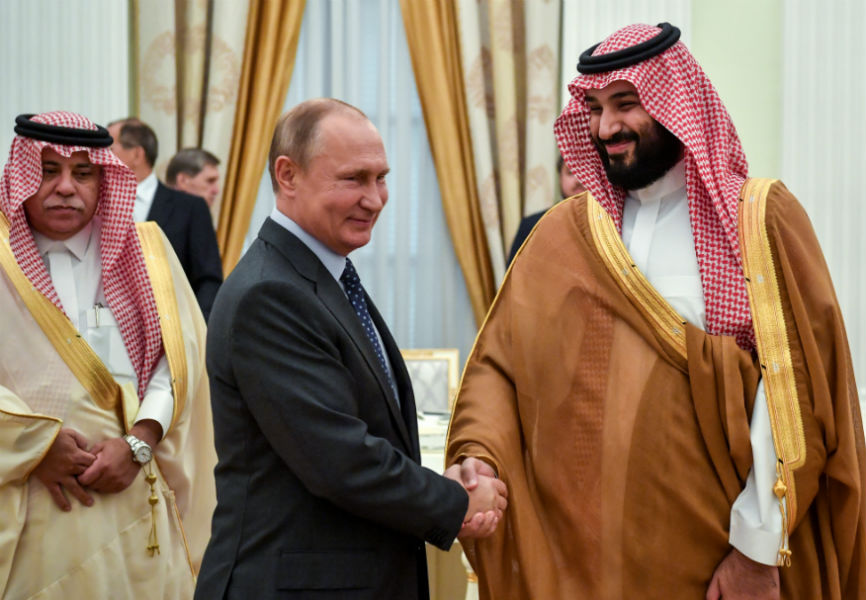For three years,
Russia and
Saudi Arabia had a deal. Together, they used their collective market power to put a floor under
oil prices by limiting their production. Then, about two weeks ago, it all broke down. The Saudis, in response to slowing demand for oil, wanted to cut production further to keep prices stable. The Russians adamantly disagreed. They wanted to produce more.
That's when the Saudis moved to teach Russia a lesson. They pledged to drown the market with an added 2.6 million barrels of crude oil per day and to cut the price for customers in Europe, a market crucial for Russia's oil industry. Over the next few days, crude prices fell 30%. The Saudis' likely message to the Russians: “The price is now lower for both of us, but we're grabbing more market share. Want to talk?”
Nyet came the word from Moscow: “No need to talk. Our economy is much less dependent on oil exports than yours, and our rainy-day funds are much deeper. We can absorb this pain for a long time. Can you? Let us know when you've changed your mind.” The oil war was on.
Having dismissed the Saudis, Russia dispatched a message like this toward Washington: “Let's be honest. You Americans have put sanctions on us mainly because you want to hurt our oil industry to help your own. That's how you've become the world's No. 1 oil producer in recent years: by attacking our companies. Lower prices offer big benefits for Russia.”
Lower prices, the Russians hope, will leave
President Trump in a tough spot. Shale production remains more expensive than traditional oil extraction, so lower prices will drive some smaller US producers toward bankruptcy. Nor does it hurt Vladimir Putin's feelings to see the US stock market in free fall, or to imagine less money invested globally in hydrocarbon alternatives in the coming years.
How long will this fight last? Maybe for months. The two commanders in this war—Putin and Saudi Crown Prince Mohammed bin Salman—are proud, impulsive men who pride themselves on toughness. Each believes he has the best weapons, at least for now. Putin remembers the tidal wave of Saudi production in the 1980s that helped drown the Soviet Union. Nor is there much likelihood of a meaningful intervention from a preoccupied Trump.
All that said, Putin knows he's playing a dangerous game. Russia's central bank reported last year that an oil price of $25 per barrel—a number much likelier now than when this forecast was made—would push Russia's economy into recession. Putin's most important project at the moment is preparing the ground to make himself Russia's leader for the indefinite future. To keep his popularity from falling with Russia's economy, he must boost spending to improve living standards.
If he devotes too much spare cash to weathering lower oil prices, Russians might have to pay much higher taxes. And though he's so far managed those rainy-day funds with great care, Putin knows we now live in a world where a storm is raging.
In the end, Putin also knows—or should know—that US shale producers aren't so easy to kill. These are smaller companies that can go in and out of business as prices dictate. The oil price will be low for a while because the pandemic will dramatically slow global oil demand. But eventually, economies will recover. The Russians and Saudis will talk their way toward allowing the oil price to move higher. US shale production will come back on line. We're left to wonder just how low Putin and MBS want to go.
This article originally appeared on Time.com. Learn more:

 Russian President Vladimir Putin and Saudi Crown Prince Mohammed bin Salman. REUTERS.
Russian President Vladimir Putin and Saudi Crown Prince Mohammed bin Salman. REUTERS.
